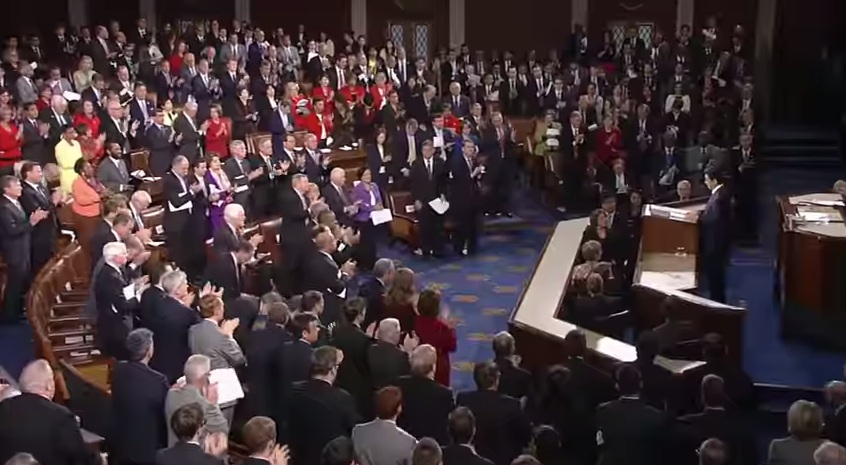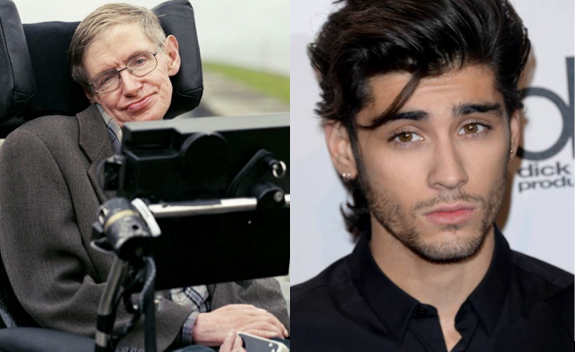by JAMES S. KIM | @james_s_kim
editor@charactermedia.com
For some, Japanese Prime Minister Shinzo Abe’s “eternal condolences” for the American lives lost during World War II were not enough.
In the first address by a Japanese leader to a joint meeting of Congress, Abe acknowledged on Wednesday that Japan’s actions “brought suffering to the peoples in Asian countries,” but stopped short of offering an apology.
He did, however, affirm that he would “uphold the views expressed by the previous [Japanese] prime ministers in this regard,” which includes a 1995 apology by Tomiichi Murayama.
Many U.S. lawmakers and activists had urged Abe to address the wartime sexual enslavement of thousands of Asian “comfort women” by the Japanese imperial army, but found themselves disappointed by the prime minister’s lack of apology.
“It is shocking and shameful that Prime Minister Abe continues to evade his government’s responsibility for the systematic atrocity that was perpetrated by the Japanese Imperial Army against the so-called ‘comfort women’ during World War II,” said Rep. Mike Honda (D-Calif), who authored House Resolution 121 in 2007 that called on the Japanese government to formally issue an apology. “Today’s refusal to squarely face history is an insult to the spirit of the 200,000 girls and women from the Asia-Pacific who suffered during World War II. This is unacceptable.”
Rep. Judy Chu (D-Calif.) was “grateful” that Abe “acknowledged the suffering of Asians at the hands of Japanese soldiers,” but said healing wartime wounds would require “honesty and an admission of responsibility.”
“Shirking that responsibility and attributing it instead to the cost of war amounts to a pardon of those who made decisions to dehumanize these women and is license to future generations to use war as an excuse,” Chu said. “The prime minister said that Japan’s eyes are always on the road ahead, but without responsibility and remorse, it is impossible to move forward.”
Community Response
Rep. Honda had invited 86-year-old Lee Yong Soo, a former comfort woman, as a guest to Abe’s speech. The wheelchair-bound Lee, dressed in a hanbok, joined hundreds of protestors outside in front of the Capitol building before the speech as they chanted, “Apologize, apologize, apologize.” She later sat in the House gallery during the session.
“There’s not many of us left and he can wait for us to die out, but that won’t erase Japan’s crimes,” Lee told reporters, according to Bloomberg.
The Council of Korean Americans also expressed their disappointment with the lack of an apology. “Ms. Lee represented the hopes of her fellow comfort women to be given a clear apology from Japan’s top leader while they are still alive,” the organization said in a statement. “We look forward to the day when Japan’s plight of the comfort women is fully acknowledged by its leadership, and the dignity of all comfort women, including ‘Grandma Lee,’ is restored.”
On Monday, Abe spoke at Harvard University’s Institute of Politics, where sophomore Joseph Chang, a Korean American student asked him to clarify his position on the comfort women issue. “I apologize in advance if my question comes off as provocative, but it has to do with a topic that weighs heavily on my heart,” Chang said. “In the face of [much evidence], do you still deny the Japanese government’s explicit involvement in the subjugation of hundreds of thousands of women into coerced sexual slavery?”
Unlike his speech before Congress, Abe did directly mention comfort women and noted he had no intention of altering the 1993 Kono Statement.
“When it comes to the comfort women issue, my heart aches when I think about those people who were victimized by human trafficking and who were subjected to immeasurable pain and suffering beyond description,” Abe stated on Monday, before mentioning Japan’s various efforts in “offering realistic relief for the comfort women” and its commitment to eliminating sexual violence in conflict situations.
U.S. Leaders Call for an Apology
Abe’s week-long visit to the U.S. was the subject of intense speculation in both Asia and the U.S. over the past month on how he would mark the 70th anniversary of the end of World War II in August. He faced a robust call for an official apology from both community organizations and U.S. officials, including House Minority Leader Nancy Pelosi, Florida Senator Marco Rubio and Chairman of the House Foreign Affairs Committee Rep. Ed Royce (R-CA).
Rep. Mike Honda wrote an op-ed for CNN, Rep. Charles B. Rangel (D-NY) wrote one for USA Today and even German Chancellor Angela Merkel urged Japan to confront its wartime conduct back in early March.
On April 23, a group of 25 Congress members sent a bipartisan letter to the Japanese ambassador asking that Abe take the opportunity for “healing and humble reconciliation by addressing the historical issues” and “formally reaffirm and validate the conclusions” expressed in the Murayama Statement and the Kono Statement. Korean American Civic Empowerment (KACE) and the Korean American Forum (KAF) took out an advertisement in The Hill, an American political newspaper, demanding that Abe issue an apology.
On Tuesday and Wednesday, the Washington Coalition for Comfort Women Issues organized rallies at the Capitol Building to “show that Abe’s denial of Japan’s responsibility for WWII and war crimes bothers Americans too.”
Trans-Pacific Partnership
Earlier Wednesday, Abe visited and laid a wreath on the National World War II Memorial on Washington’s National Mall. During his speech, he recounted the thoughts he had while visiting the memorial.
“History is harsh,” Abe said. “What is done, cannot be undone. With deep repentance in my heart, I stood there in silent prayers for some time. My dear friends, on behalf of Japan and the Japanese people, I offer with profound respect, my eternal condolences to the souls of all American people that were lost during WWII.”
Celebrating the now-strong U.S.-Japan relationship, Abe spent most of the 45-minute speech championing the Trans-Pacific Partnership (TPP), a proposed free trade agreement among 12 countries in the Asia-Pacific region that account for 40 percent of global GDP, according to the Associated Press. (The TPP does not include South Korea, which already has a free trade agreement with the U.S.)
The TPP has been controversial in both in the U.S. and Japan. President Obama met with Abe on Tuesday in the Oval Office, both declaring progress in bilateral trade talks. However, many lawmakers on both sides of the aisle in Congress have expressed skepticism. Somewhat surprisingly, much of the dissent has come from the Democrats, who are opposed to giving the president trade promotion authority (TPA), the ability to negotiate trade agreements that Congress could not amend.
Recommended Links
Full speech on YouTube (Address begins at about 48:10)
Abe’s address and Q&A at Harvard University on April 27 on YouTube
New York Times Editorial Board: “Shinzo Abe and Japan’s History”
Washington Post: “70 years later, a Korean ‘comfort woman’ demands apology from Japan”
Washington Post: “Congressman [Mike Honda] uses Japanese leader’s visit to press for war-crimes apology”
___






